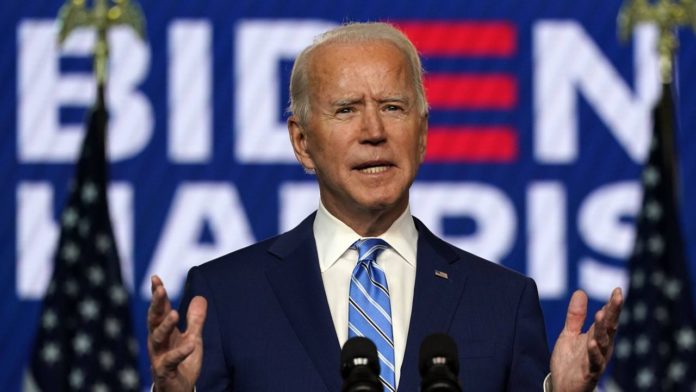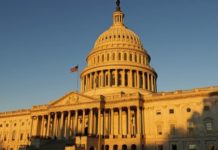
Mr. Biden’s low standing in head-to-head general-election polls reflects voters’ dour appraisal of his performance as president. In surveys of polls from both RealClearPolitics and FiveThirtyEight, public disapproval tops 55% while approval stands at around 40%. If the election were held tomorrow, Mr. Biden would lose.
Democratic optimists, a shrinking tribe, offer the timeworn response: Polls are snapshots, not predictions, and don’t mean much this far in advance of the election. Still, today’s snapshot shows the president in a deep hole, and it isn’t clear that he has stopped digging.
Mr. Biden begins his campaign for re-election in a far weaker position than he was in four years ago. In December 2019, Mr. Biden led then-President Trump in the polls by an average of 4.5 points, and from then until November 2020, he never came close to trailing. Mr. Biden’s lead in December 2019 precisely matched his margin of victory 11 months later.
Some veterans of President Obama’s 2012 re-election campaign argue that today, as then, assessments of the incumbent’s re-election prospects are unduly negative. Maybe so, but Mr. Obama was never in as much political trouble as Mr. Biden is in today. In December 2011, 43% of the electorate approved of Mr. Obama’s performance as president, while 49% disapproved. During the first quarter of 2012, his job approval moved up to 45%, and it rose to 47% in the second and third quarters before surging to 50% on the eve of the election. Tellingly, he led Mitt Romney by about 2 points in head-to-head polls conducted in mid-December 2011, a lead he relinquished only once between then and the 2012 election.
Other bad analogies between 2012 and 2024 need no statistical documentation. Unlike today, there were no significant independent or third-party challenges threatening to split the Democratic coalition. No one thought that Mr. Obama was too old for a second term—or worried that his vice president was less than fully qualified to take his place. And because the Republican nominee lacked a clear public profile, the Obama campaign had an opportunity to define him before he could define himself, an early onslaught from which he never fully recovered.
The optimists have another card to play: People have forgotten why they denied Mr. Trump a second term. Surely, when voters realize that the only serious alternative to Mr. Biden is Mr. Trump, they’ll remember why they chose Mr. Biden four years ago, and they will return to the fold.
No doubt there is some truth to this. On the other hand, Mr. Biden had no presidential record to defend four years ago. He was a vessel into which a diverse coalition poured its hopes, many of which haven’t been met. The Biden coalition is fraying. Rekindling the enthusiasm that led it to vote in record numbers won’t be easy.
Fear of Mr. Trump’s return with an even more radical agenda will do some of the work, as will the passion the Dobbs decision evoked, not only in the Democratic base but in many swing voters as well. A continuation of wages rising faster than prices, a trend that began this spring, will be essential to Mr. Biden’s re-election.
But it wouldn’t be wise to assume that this will be enough. Mr. Biden must address the problems that have diminished his chances for re-election. This means striking a deal with Republicans that reduces the pressure of migrants at the southern border. It means using his State of the Union address to mount a direct assault on the rising costs of food, housing, cars and child care, which make so many Americans feel that they are losing ground. It means putting our policies for Ukraine and the Middle East on a course that is sustainable and substantive.
It means waging a vigorous campaign that puts the president in front of the American people every day. It means scheduling the vice president to speak on issues that give her a chance to shine. And it means mobilizing the strong Democratic bench—especially the party’s governors—as surrogates to speak on the president’s behalf everywhere, all the time.
Above all, Democrats want Mr. Biden to replace the miasma of complacency that surrounds his campaign with a sense of urgency that meets the moment. Only he can prevent Donald Trump from re-entering the Oval Office. No one drafted him for this task; he chose it. Now he must do his utmost to discharge this momentous responsibility.






